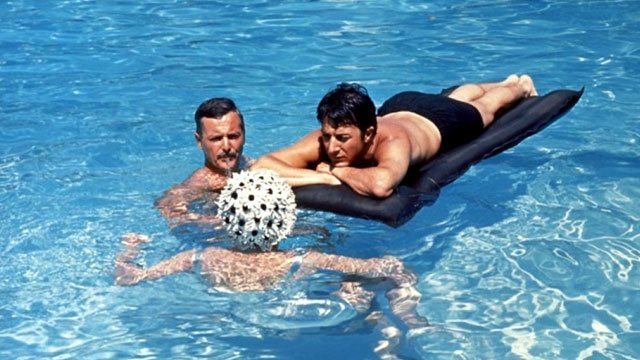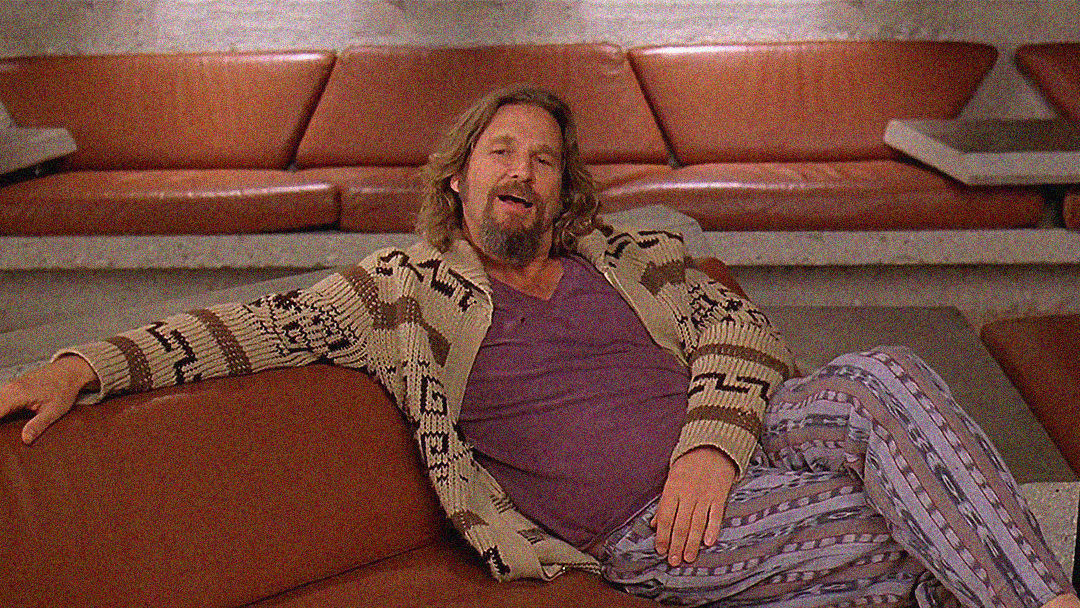
Towards the end of his first missive to the Corinthian church, the Apostle Paul offers a mini tour-de-force in defense of the veracity of the bodily resurrection of Jesus. For Paul this conviction is central not just to the future hope of the people of God but also to orient the pilgrim life of the faithful in this present broken age. “The sting of death is sin, and the power of sin is the law. But thanks be to God, who gives us the victory through our Lord Jesus Christ” ( 1 Cor. 15:56-57). Then the argument concludes with something that, to some, might seem a bit surprising. Rather than quietistic comfort rooted in a longing for the sweet by and by, we find these words: “Therefore, my beloved, be steadfast, immovable, always excelling in the work of the Lord, because you know that in the Lord your labor is not in vain“ (1 Cor. 15:57).
Numerous scholars, pastors and theologians have pointed out in recent years that the resurrection of Jesus is not the divine abandonment of a forsaken world; it’s an embodied commitment to the world’s redemption, warts and all. This is certainly right, and it’s at the heart of the church’s conviction that extraordinary things happen to the rather ordinary and sinful stories which constitute our lives when they intersect with materially unremarkable things like water, bread and wine. Karl Barth was fond of pointing out that God wasn’t limited to word and sacrament to reveal his reconciling presence to sinners. He could use a flute concerto, a communist manifesto or a dead dog. The Risen Christ does indeed play in thousands upon thousands of places. But what is the nature of the labor in which the post-Easter people of God are called to in a posture that is steadfast and immovable with a confidence that it is not undertaken in vain?
It’s quite fashionable in many theological circles to see the work of the church as building the Kingdom of God. It doesn’t matter what denomination you find yourself in or where in that fold you find yourself on the theological or ideological spectrum. There are right-wing and left-wing Kingdom builders. There are Kingdom builders who identify as both radical anti-establisment types as well as those who see the Kingdom of God advanced by incremental and unglamarous investment in society’s institutions.
 It’s interesting to note the verbs used in the New Testament concerning the church and the Kingdom–no where do you find the church building the Kingdom of God. When the Kingdom is mentioned in relation to God’s people, the latter “receive” or “inherit” the former. For all the would-be Kingdom activists, there are very few corresponding active verb tenses to be found in the inspired witness of the apostles or their associates. What’s a Christian to do then in light of the reality of the Risen Christ? What about…nothing?
It’s interesting to note the verbs used in the New Testament concerning the church and the Kingdom–no where do you find the church building the Kingdom of God. When the Kingdom is mentioned in relation to God’s people, the latter “receive” or “inherit” the former. For all the would-be Kingdom activists, there are very few corresponding active verb tenses to be found in the inspired witness of the apostles or their associates. What’s a Christian to do then in light of the reality of the Risen Christ? What about…nothing?
This was H. Richard Niebuhr’s suggestion in response to those like his brother Reinhold who were convinced in the early 1930s that the best response to Japanese aggression in Southeast Asia was military intervention:
It is when we stand aside from the conflict, before we know what our relations to it really are, when we seem to be condemned to doing nothing, that our moral problems become greatest. How shall we do nothing?…
The issue is brought home to us by the fighting in the East. We are chafing at the bit, we are eager to do something constructive; but there is nothing constructive, it seems, that we can do. We pass resolution, aware that we are doing nothing; we summon up righteous indignation and still do nothing; we write letters to congressmen and secretaries, asking others to act while we do nothing. Yet is it really true that we are doing nothing? There are, after all, various ways of being inactive, and some kinds of inactivity, if not all, may be highly productive. It is not really possible to stand aside, to sit by the fire, in this world of moving times; even Peter was doing something in the courtyard of the high-priest’s house—if it was only something he was doing to himself. When we do nothing we are also affecting the course of history. The problem we face is often that of choice between various kinds of inactivity rather than of choice between action and inaction.
H. Richard Niebuhr’s inactivity is a qualified sort. It’s not the inaction of the pessimist who “does nothing in the international crisis because he believes that the way of Japan is the way of all nations, that self-interest is the first and only law of life, and that out of the clash of national, out of that of individual, self-interests the greater good will result.” The inactivity of the pessimist is “one of watchful waiting for the opportunity when, in a precisely similar manner, though with less loss of life and fortune, if possible, he may rush to the protection of his own interests or promote them by taking advantage of the situation created by the strife of his competitors.” This sort of inactivity encourages and rewards the “self-asserters” and “it fills them with fear of the moment when the new competition will begin.”
Neither is the inactitivity Niebuhr advocates the kind motivated by frustration and moral indignation. This second kind of inactivity is much different than that of the pessimist. The morally indignant inactivity is like “that of a man who is watching a neighborhood fight and is waiting for the police to arrive—for police who never come.” This man has “renounced for himself the method of forcible interference, which would only increase the flow of blood and the hatred, but; he knows of nothing else that he can do.” The indignant inactive subject is “forced to remain content on the sidelines, but with mounting anger he regards the bully who is beating the neighbor, and his wrath issues in words of exasperation and condemnation.” The indignation and anger continue to increase, and if the police fail to arrive, force this man to either enter the conflict himself despite his moral qualms or convulse in apoplexy.

Niebuhr also eschews the inactivity of the Marxists of the day. They see nothing constructive can be done in moments like these but understand that the unfolding of such events are the preliminary prerequisites to a revolutionary change that will eliminate the conditions that make such imperialistic and egoistic conflicts so possible and prevalent. Marxist inactivity “is the activity of a cynicism which expects no good from the present, evil world of capitalism, but also the inactivity of a boundless faith in the future.” Marxists know that war is often the midwife of revolution. The discontent and suffering war brings are the stuff out of which new worlds may be born. The Marxist sees an opportunity “not for direct entrance into conflict, not for the watchful waiting of those who seek their self-interest, but for the slow laborious process of building-up within the fighting groups those cells of communism which will be ready to inherit the new world and be able to build a classless international commonwealth on the ruins of capitalism and nationalism.” This is “inactivity with a long vision, a steadfast hope and a realistic program on non-interfering action.”
Niebuhr’s inactivity is distinct from all the aforementioned and appears to many to be the most impractical because it is rooted in the “well-nigh-obsolete faith” in a living, even present God:
From this point of view, naively affirming the meaningfulness of reality, the history of the world is the judgment of the world and also its redemption, and a conflict like the present one is—again as in communism—only the prelude both to greater judgment and to a new era. The world being what it is, these results are brought forth when the seeds of national or individual self-interest are planted; the actual structure of things is such that our wishes for a different result do not in the least affect the outcome. As a man soweth so shall he reap. This God of things as they are is inevitable and quite merciless. His mercy lies beyond, not this side of, judgment. This inactive Christianity shares with communism also the belief in the inevitably good outcome of the mundane process and the realistic insight that good cannot be achieved be the slow accretion of better habits alone but more in consequence of revolutionary change which will involve considerable destruction. While it does nothing it knows that something is being done, something which is divine both in its threat and in its promise.
This sort of inaction, rooted in faith in the God who died and who raises the dead, may provoke painful self-reflection. It quickly unmasks righteous indignation as lacking in real righteousness. By grace it offers a complex set of lenses through you might look at the world, lenses that reveal the “opposite approach from that of the irate father who believes that every false reaction on the part of his child may be cured by a verbal physical or economic spanking.” This way of doing nothing, Niebuhr claims, is what the “old Christians called repentance.”
The inactivity Niebuhr calls for may be the kind of labor that Paul calls the Corinthians to do and assures them in light of the resurrection it is not done in vain:
…it is the inaction of those who do not judge their neighbors because they cannot fool themselves into a sense of superior righteousness. It is not the inactivity of a resigned patience, but of a patience that is full of hope and is based on faith. It is not the inactivity of the noncombatant, for it knows that there are no noncombatants, that everyone is involved, that China is being crucified (though the term is very inaccurate) by our sins and those of the whole world. It is not the inactivity of the merciless, for works of mercy must be performed though they are only palliates to ease present pain while the process of healing depends on deeper, more actual and urgent forces…But if there is no God, of if God is up in heaven and not in time itself, it is a very foolish inactivity.
So many calls to action in the name of building the Kingdom of God often are rooted in the kind of pessimism, indignation or “revolutionary” fervor that Niebuhr describes. Whether on a personal or societal level, there are numerous things that make us fearful and anxious. And what better antidote to fear and anxiety than action and control (or even better action that controls)? How often in the face of real pain do we speak or act too quickly not to alleviate the suffering of the other but to assuage the unease in us that is caused by proximity to it, and to them?
In an essay written in 1980 entitled “Resurrection, the Holocaust and the Obligation to Forgive,” Stanley Hauerwas writes the following about Easter faith and the sort of Christian engagement with the world it animates:
Far from marking God’s retreat from the world, the resurrection of Jesus announces that Christians can do nothing to alienate God’s steadfast will to forgive and love them. The Holocaust presents a profound challenge to this. Like the Apostle Thomas, the painful lesson to be learned is that the resurrected Lord is also the crucified Messiah. The God Christians worship is one whose power resides in steadfast graciousness, not in making the horrible reality of the crucifixion or the Holocaust come out right. Freed to live as Easter people—not triumphalistically, but chastened by the history of suffering of the Jews, which is thus their history—Christians recognize their obligation to accept and to ask for forgiveness.
Activity in the world that begins and ends with the need to ask for and accept forgiveness, asking God again and again for the grace to live forgiven may be the seed of a blessed inactivity that is certainly not undertaken in vain.
This piece was sparked by a recent conversation with my friend and colleague Bill Borror. You can listen to it here.

COMMENTS
3 responses to “Resurrection & The Grace Of Doing Nothing”
Leave a Reply















It should be noted that a certain kind of activism presupposes action that is not only non-sensical, but absurdly condescending.
I recall an anecdote where a young white girl approached Malcolm X after a talk he gave. She asked him what she should do, and he responded with “Nothing”. It’s not the white girl’s responsibility for righting wrongs, more than anything she needs to get out of the way.
Or I remember Rick Warren asking McCain and Obama what they would do about evil in the world. Obama gave a nuanced Niehbuhrian (Reinhold) answer, and McCain gave a gung-ho, I’ll hunt America’s enemies to the gates of Hell. How absurd are these questions?! What can man do about Evil, in that cosmic sense?!
Doing “nothing” is sometimes the only realistic option, and the humble one. It’s as you say. Doing the work of God is as that last Richard Niebuhr quote puts it so eloquently.
C
Does this mean you’re not going to vote this year?
I’m happy to vote – as long as there is one worthy of voting for. If not, should one vote merely for the sake of voting?